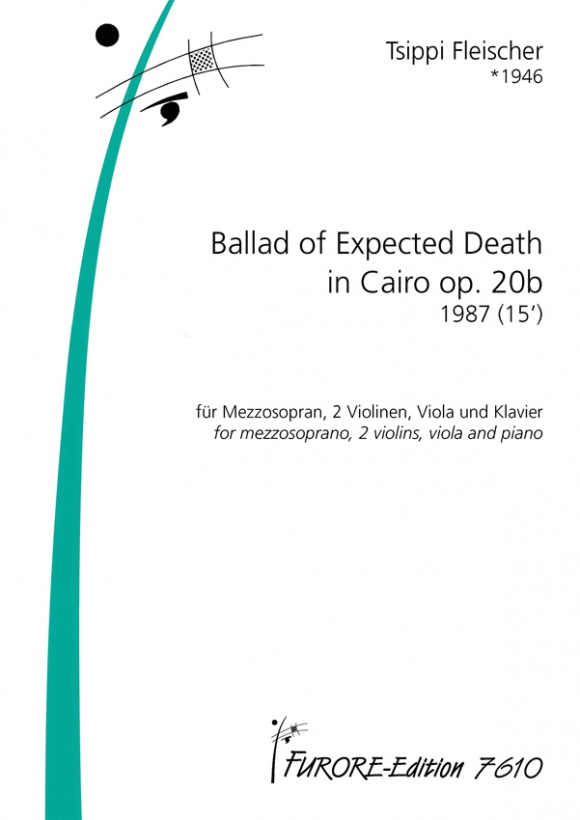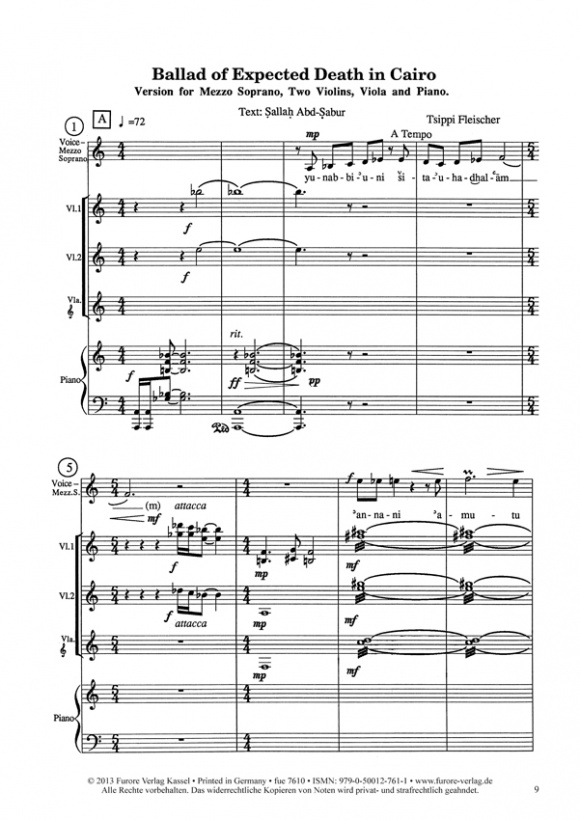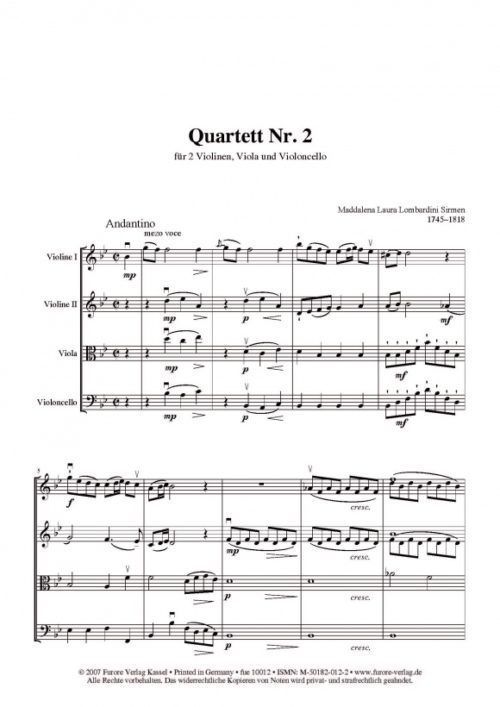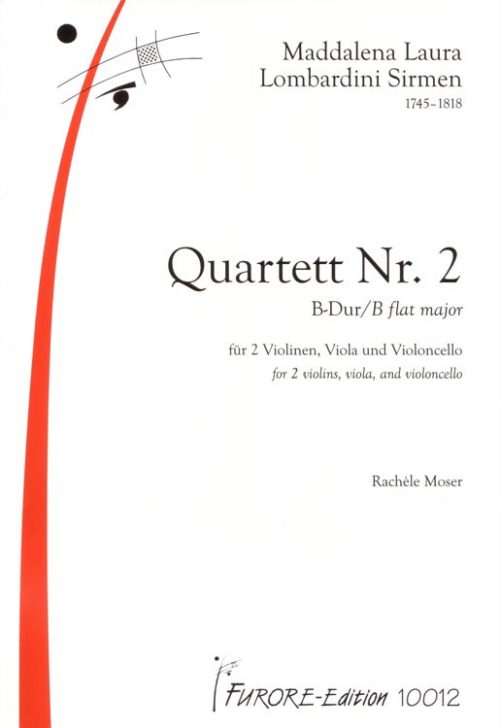Description
Ballad of Expected Death in Cairo op. 20b
1987 (15’)
für Mezzosopran, 2 Violinen, Viola und Klavier
for mezzo-soprano, 2 violins, viola and piano
World Première: December 14, 1989, Cercle Bernard Lazare, Paris
Text: Sallah Abd-el-Sabur (Arabic)
Ed. Nr.: fue 7610
Sound Research of Women Composers: Contemporary Music (C 277)
Edition: complete performance material: 2 x score and string parts
The Ballad of Expected Death in Cairo was written during summer 1987 while Tsippi Fleischer travelled to Cairo where she discovered a text of the poet Sallah Abd El-Sabur.
It deals with death from a philosophical point of view and contains flowing descriptions of scenes of everyday life in Cairo.
Fleischer travelled to Egypt to meet and exchange ideas with other musicians. In Cairo she discovered the poem “Winter Song” of the poet Sallah Abd El-Sabur.
Influenced by that, the music came to her while walking through Cairo in the mist of early morning. The combination of the smell of the city, masses swarming in the streets, those ornate street signs and the call of the muezzin was the additional inspiration for the work. It deals with death from a philosophical point of view and contains flowing descriptions of scenes of everyday life in Cairo.
The Ballad could be described as an opera seria, which follows the patterns of the Kurd Maqam, one of the melodic lines of the Arabic sound system. Arabic music is in its purest form always monophonic. It follows only a single melodic line, which is repeatedly modified and refined. Each maqam (melodic line) has expressed its own name, either refers to its geographical origin, such as Maqam Hijaz, Maqam Kurd
and so on.










